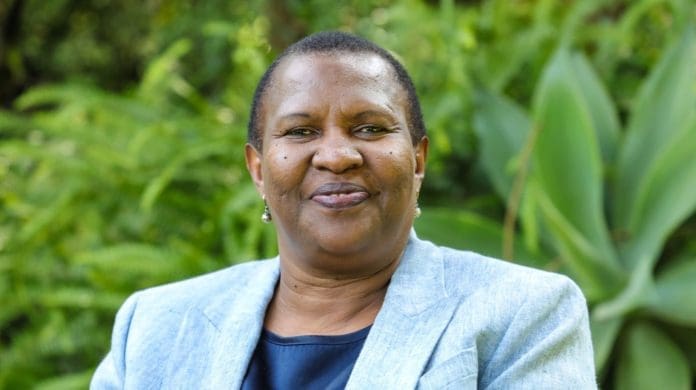By Alice Ruhweza, President, AGRA
Ending hunger in Africa is not about growing more maize or producing more milk. It demands a balance that involves scaling agronomic solutions such as fertilizer, improved seeds, and irrigation, while mobilizing young people to deliver the systems that make these tools work. Fertilizer, for example, only works when it reaches farmers at the right time, and seeds achieve their promise when distributed through trusted channels and planted with the right advice. Irrigation also boosts yields only when markets can absorb the surplus.
What ties these elements together for a transformative output are reliable actors, without whom even the best technologies risk sitting idle. This is where Africa’s demographic advantage comes into focus. With a vastly youthful population, the continent has the human capital to drive agricultural transformation. However, for this potential to be realized, systemic constraints that have long undermined African farming must be dismantled.
For starters, we must acknowledge that, too often, input supply chains are broken by adulteration and weak distribution. Farmers, uncertain of what they are buying, hesitate to invest. Strengthening quality control and enabling youth to run distribution franchises could restore trust and ensure genuine products reach the all-important last mile.
Markets also fail farmers when prices collapse or buyers vanish, destroying livelihoods. Youth-led aggregation businesses and contract farming could stabilize incomes and provide dependable off-take for smallholders.
Extension services remain another glaring weakness, with too few government officers serving millions of farmers. This leaves wide gaps for misinformation to persist. Digitally savvy youth extension workers can bridge this divide, delivering localized guidance at scale.
And without rural roads, cold storage, or functioning market centers, even bumper harvests can rot before they generate value. Investments in infrastructure, covering roads linking villages to towns and cold chains preserving perishables, would not only reduce waste but also create fertile ground for youth-led enterprises.
Meanwhile, across the continent, young entrepreneurs are already reshaping food systems. They are building climate-resilient farms, launching agri-tech and agri-finance start-ups, and modernizing value chains from seed to shelf.
Consider Arabuko, a Kenyan enterprise run by young entrepreneurs. The company sources produce from smallholder farmers and has grown into a certified exporter, meeting international standards while employing youth and training hundreds more to become agripreneurs. Arabuko connects farmers to inputs, aggregates produce for markets, ensures compliance with export standards, and creates jobs along the way.
For widespread impact, such initiatives must be empowered to scale, facilitated by deliberate investments to keep the entire system connected, rather than leaving entrepreneurs to fight in isolation. In this regard, youth-targeted blended finance with first-loss guarantees to de-risk private investment, land tenure reforms that enable long-term leases, pluralistic extension models and peer networks, stronger input quality controls, and youth employment targets embedded in national agricultural plans, are mandatory.
This year’s Africa Food Systems Forum in Dakar will be my first as the President of AGRA. With AGRA also marking its 20th anniversary, the drive across the continent to democratize agriculture, especially for smallholder farmers, has been both inspiring and instructive. Over the years, we have seen how access to better seeds, markets, finance, and knowledge can shift not just harvests but entire communities. Yet the work is far from done. As we gather in Dakar, my focus is on how we can accelerate these gains by placing young people at the center of food systems transformation, ensuring they have the tools, trust, and opportunities to lead Africa into a more secure and nourished future.
I look forward to celebrating the continent’s excellence through the Africa Food Prize, the Women Agripreneurs of the Year Awards and the energy of the Youth Dome.
These commemorations are not just events, they underscore a larger truth, that transformation will only come when we empower Africa’s young people to drive systemic change, backed by reforms in finance, land, inputs, and infrastructure. Dakar is our chance to act with urgency and unity to turn that promise into progress.
Alice Ruhweza is the President of AGRA
Source: newsghana.com.gh











